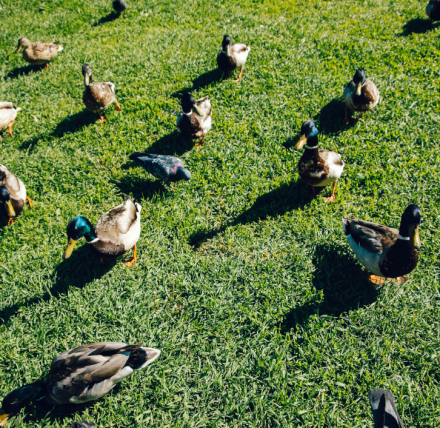


‘Getting one’s ducks in a row’: What are the benefits of voluntary land registration for your farm?
INSIGHTS
To the hardworking farmers of this nation, the nuances of the Scottish land registration system is a subject that is likely far down your priority list. It may be a surprise to many to hear that Scotland’s land currently sits in two different registers. The 407-year-old (now closed) Register of Sasines, and the 43-year-old Land Register of Scotland.
2024 marks the point where the Keeper of the Land Register of Scotland wants to achieve ‘functional completion’ of the Register. This means that a critical mass of properties will be removed from the Sasine Register and placed into the Land Register of Scotland. The expectation is that the average conveyancing transaction will then involve property that is registered in the more modern Land Register. This will hopefully simplify the conveyancing process.
However, such a task has proved to be more complex than anticipated. As of June 2024, 54.2% of Scotland’s land is registered in the Land Register, with a further 6.5% undergoing the process of registration. Rural land is often less likely to have made the transition from the Sasines to the Land Register. A large proportion of this rural land will naturally constitute agricultural land, owned by farmers.
Voluntary Registration (VR) is a process that involves registering one’s legal title in the Land Register of Scotland, without changing the ownership of the property in question. The perks of such a course of action may appear insignificant, but there are numerous benefits for farmers.
Benefits
The first benefit is that the registration dues payable to the Registers of Scotland attract a 25% discount with VR. ‘That may be all well and good, but why pursue VR in the first place?’ I hear the reader exclaim. Well, the benefits to landowners are tangible and numerous.
Have you ever wondered about the exact extent and nature of your boundary with a troublesome neighbour? Perhaps a watercourse that is essential to watering your prize winning Highland Coos is coveted by the same neighbour, who claims it forms part of his title? Maybe you are thinking about selling some ground to a renewable energy developer? Or you are possibly looking at selling the entire farming enterprise and retiring to somewhere with some actual sun?
VR is an essential step to achieving an equitable outcome in the above scenarios. Land registration clarifies the exact nature of your legal title. Often in the event of a conveyancing transaction, property that remains in the Sasines can be much more complex to sell or buy. In time sensitive situations, perhaps in situations where lending is involved, a property that is not land registered and retains a convoluted sasine title can become a very real threat to the viability of a transaction.
Furthermore, in situations where your land enters the Land Register of Scotland, your title takes presumption over an overlapping claim coming from the Sasines. With functional completion edging closer and closer, you would not want to be caught out by your ever pesky neighbour. Imagine the look on their face when they explain that they can finally take claim to your prized watercourse? Check Mate.
If you would like further information on Voluntary Registration of boundaries, please contact Harper Macleod’s dedicated Rural team.
About the author
RELATED
CONTACT US
Call us for free on 0330 912 0294 or complete our online form below for legal advice or to arrange a call back.